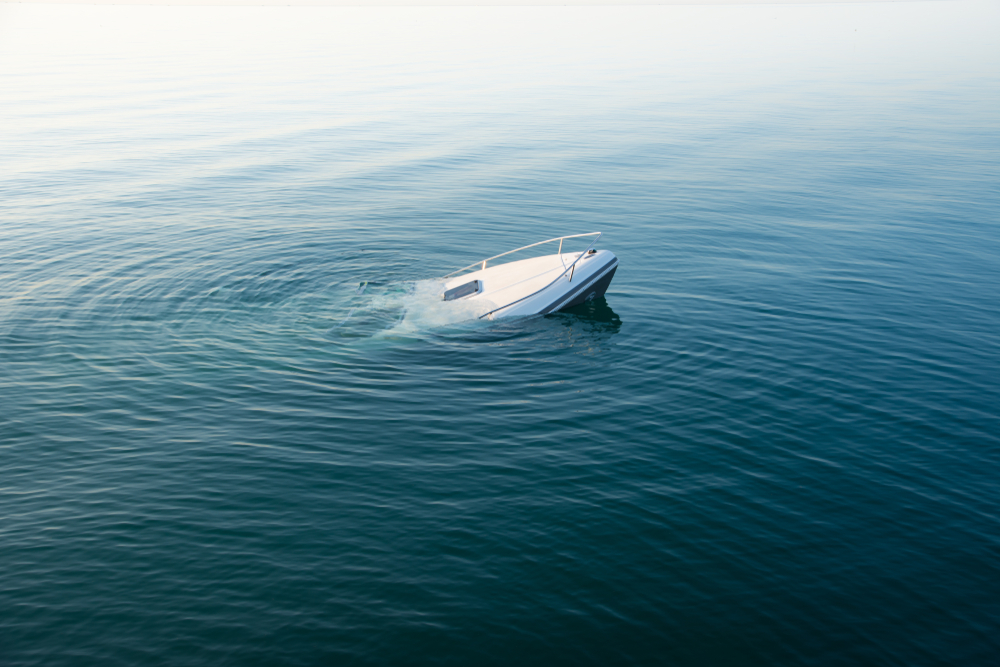When was the last time you had to deal with a boating accident? If you haven’t experienced such a situation, you probably don’t realize how serious these circumstances can be. When boaters get into trouble, they often panic. They might even try to bail out or swim to shore without thinking things through. This is dangerous because it could result in a severe injury or even death. In some cases, boaters who don’t know how to handle emergencies end up sinking their vessels by accident.
It is crucial to understand the measures that must be taken when facing such a situation. Having basic knowledge during a boating accident could save your life and those around you. Your actions and understanding can also help determine whether you can claim compensation or not. In the following article, we have detailed the steps you should take when such an accident occurs.
What is a Boating Accident?
Not everyone is aware of what is considered a boating accident. In simple terms, if there is significant property damage, a missing person, or an individual that has been injured, it is considered a boating accident. Here are some scenarios that can be categorized as such:
- Colliding with another boat.
- Hitting a stationary object
- Flooding
- Sailing into rocks or reefs, causing damage to the bottom of the boat
- An individual falling overboard
Stop the Boat
In the case of a boating accident, the boat operator must stop as soon as possible to assess the situation. They should immediately check to ensure that they and nobody else onboard is hurt. The operator must inspect the vessel to determine whether damage has been done to the hull that could compromise safety or seaworthiness.
Aid Individuals Who Need Medical Attention
In a boating accident, as noted above, your top priority should be finding those needing medical attention. Before assessing others, check yourself for injuries. If immediate attention is required, get help as soon as possible. Ensure those around you are wearing life jackets, including yourself. You should also call emergency services, especially if you think there is a risk to life. Please note that it’s important to get examined by a paramedic regardless of whether symptoms visible or not, as you may have delayed signs. It is vital for you to understand the extent of your injuries. To ensure you stay prepared in case of such an emergency, invest in a VHF radio.
Get Information About the Accident
After assessing passengers that need medical attention, you will then need to understand the accident. You should collect all available information and details surrounding the event. Gathering eyewitness statements are in addition to talking to the operators of any nearby boats involved in the accident.
Here are some pieces of information to collect and ask from those involved in the accident.
- Ask for names, addresses, and details surrounding the incident from those on the boat.
- Get the insurance company name of the boat operators, in addition to the make and model of the vessel.
- Talk to anyone who may have seen the boat crash, and ask for their names and contact information.
- Record the accident’s location, when the accident occurred, and any damages seen.
- Document who has been injured on the boat.
- Try to take photos of the boat and the damages it may have sustained.
- Take notes of everything you remember surrounding the boating accident.
Reach Out to Your Insurance Company and (if Applicable) File a Personal Injury Claim
Collecting information is crucial as it can help if you decide to go to court or an insurance company. When you choose to take either step, evidence must be presented to demonstrate who is at fault before damages can be claimed. When you are in court you will need to prove:
- That the operator not at fault was in charge to ensure you were safe.
- The operator, if at fault, acted negligently and therefore caused the accident.
- Your injuries were caused by the accident.
Comparative fault laws should also be taken into consideration when filing a personal injury claim. If you were at fault for the accident, your claim could be lowered. Remember, there are some provinces where compensation can be renounced if evidence is presented showing that you provoked 1% of your injuries. Other provinces will allow compensation if another individual or operator is more to blame than you. Furthermore, if you are not the only party to blame, you may still be eligible for insurance coverage. Finally, get an inspection done on your boat, even if you believe the damages are minor.
Call a Lawyer
When deciding on taking the boating accident to court, you must call a lawyer. Though a personal injury lawyer can represent you well, they may not have the knowledge as an expert in the field. This is why it is advisable to call a boating accident lawyer who can inform you adequately and tell you what to do when you are involved in such a situation.
Remember that when you are injured due to boater negligence, you have the right to claim compensation. If you are partially at fault for the accident, a lawyer will help defend your case against the allegations you face. Unfortunately, numerous people will not seek legal advice because they are worried about the cost. There are many lawyers that will offer a free consultation, and some will not charge unless you win.
Getting into a boating accident can be traumatizing. When faced with such a situation, some steps should be taken for your safety and benefit. One of these essential steps is gathering information to help in claim boating insurance. We know from first-hand experience how essential this is for boaters. To learn more about our policy options or to discuss your coverage regarding your boat, reach out to us or request a quote today. We’re happy to assist!


